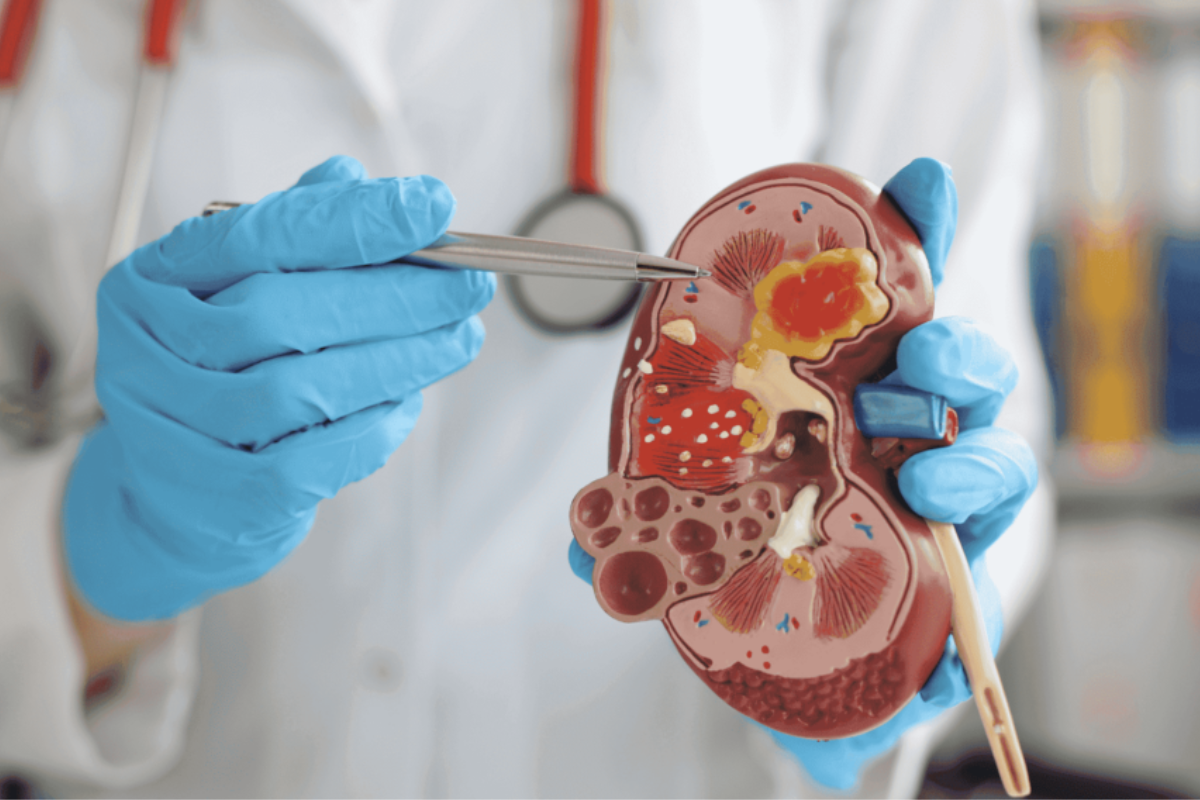BLOG

Mar 21,2025
Most Common Urology Diseases
For men in general, when it comes to urological issues, it is a topic that can be uncomfortable to discuss. Such delays in seeking the right treatment may lead to complications in the future. Many urological diseases are common among men but they also significantly impact quality of life. With proper knowledge about such conditions, it not only becomes easier in early detection, but also helps in getting the right treatment at the right time.
Kidney Stones
A small stone with big consequences is the perfect definition for kidney stones. It is one of the most painful experiences imaginable. Kidney stones are formed from minerals crystallising in the kidneys. They cause severe pain, typically beginning in the side or back, extending toward the groin, and accompanied by nausea, vomiting, or blood in the urine.
Why Do Kidney Stones Form?
Lack of hydration, improper diet, obesity and even certain genetic factors can lead to the formation of the stones. Additionally, higher salt intake is also a contributing factor.
Managing Kidney Stones:
Generally, stones smaller in size can be broken down with medication and be naturally removed from the body through urination. The larger stones are the ones that require interventions like shock-wave lithotripsy, which breaks stones into smaller fragments. If this doesn’t work, then the route of minimally invasive surgery is taken.
Urinary Tract Infections (UTIs)
Urinary tract infections (UTIs) are one of the most frequently diagnosed urological issues. It is generally caused due to bacteria such as E. Coli when present in the urinary tract. While prevalent in women, men and children can get affected by UTIs as well. Symptoms such as painful or frequent urination and sometimes cloudy or strong-smelling urine are an indicator of UTI.
The Root of the Problem:
Lack of hygiene, poor hydration and a weak immunity are some factors that elevate the risk of infections. Additionally, incomplete bladder emptying or kidney stones can cause recurrent infections.
Keeping UTIs at Bay:
Drinking plenty of fluids, establishing proper hygiene, and not holding the urine are some simple remedies one can take. Engaging in safe sexual practices also keeps UTIs at bay. UTIs can be overcome with antibiotics, but chronic infections may require further medical evaluation.
Enlarged Prostate (BPH)
Enlarged prostate, also known as benign prostatic hyperplasia (BPH), is a problem highly prevalent among men over 50. It is non-cancerous in nature but does affect the urinary system. It can lead to a weak urinary stream, frequent nighttime urination, and the feeling of incomplete bladder emptying.
Why Does the Prostate Enlarge?
It is generally caused by hormonal changes associated with ageing. With age, hormonal shifts in men cause the prostate to expand and restrict urinary flow.
Living Comfortably with BPH:
Mild cases respond well to lifestyle changes and medication. But in moderate or severe cases, minimally invasive procedures like laser surgery or the TURP (Transurethral Resection of the Prostate) procedure can effectively restore normal urinary function.
Urinary Incontinence
Urinary incontinence is something that is described as involuntary leakage of urine. It affects millions worldwide but remains seldom discussed openly. It can range from occasional leaks during sneezing or laughing (stress incontinence) to a sudden, intense urge to urinate (urge incontinence), significantly impacting daily routines and self-confidence.
What Causes Incontinence?
Factors include weakened pelvic floor muscles, childbirth, obesity, ageing, and neurological disorders such as stroke or Parkinson’s disease.
Finding Your Solution:
Pelvic floor exercises (Kegels), bladder training techniques, weight management, and certain medications can substantially alleviate symptoms. In severe cases, surgical options exist to restore bladder control, drastically improving quality of life.
Erectile Dysfunction
Erectile dysfunction (ED) refers to the persistent inability to achieve or maintain an erection sufficient for sexual activity. Far from being merely psychological, ED is frequently an early indicator of underlying health conditions like cardiovascular disease, diabetes, or hormonal imbalances.
What Leads to ED?
The primary cause is compromised blood flow, but lifestyle factors like smoking, excessive alcohol use, obesity, anxiety, and stress also play a significant role.
Addressing ED Effectively:
Treatments include lifestyle modifications, medications like PDE5 inhibitors (Viagra, Cialis), hormone replacement therapy, and psychological counselling. Early intervention not only improves sexual health but also addresses hidden health concerns.
Overactive Bladder (OAB)
An overactive bladder, marked by frequent, urgent urination, can severely disrupt daily routines. OAB sufferers often rearrange their lives around bathroom availability, limiting social and professional interactions.
Triggers of OAB:
Bladder muscle spasms, neurological conditions, medication side effects, or simply ageing can all contribute to an overactive bladder.
Regaining Daily Comfort:
Reducing caffeine and alcohol intake, practicing bladder training techniques, and using medications to relax bladder muscles are effective strategies to reclaim control over your schedule and restore quality of life.
Simple Ways to Keep Urological Diseases at Bay
Maintaining urological health involves simple yet impactful practices. Hydration, regular exercise, balanced nutrition, maintaining a healthy weight, and regular health check-ups significantly reduce your risk of common urological issues. Recognising symptoms early and seeking timely medical advice can prevent minor discomforts from becoming major health concerns.
Taking Charge of Your Urological Well-being
Understanding common urological conditions is the first step towards better health—but choosing the right expert to guide you through diagnosis and treatment is equally crucial. In Chennai, Dr Karthikeyan, an accomplished uro-andrologist, offers compassionate, patient-centred care grounded in the latest medical advances. Combining his extensive expertise with a warm, empathetic approach, Dr Karthikeyan ensures that each patient receives personalised solutions to their urological concerns. Trusting your health to the right specialist is essential; with Dr Karthikeyan, you're assured of both clinical excellence and genuine care.
Copyright © . Karthikeyan V S. All Rights Reserved.
Powered By: Cortex Media Marketing Pvt Ltd


